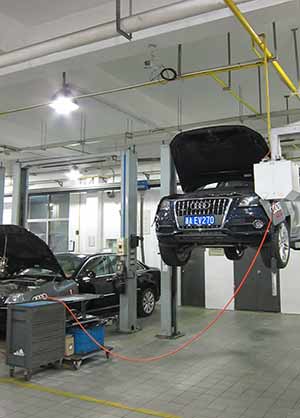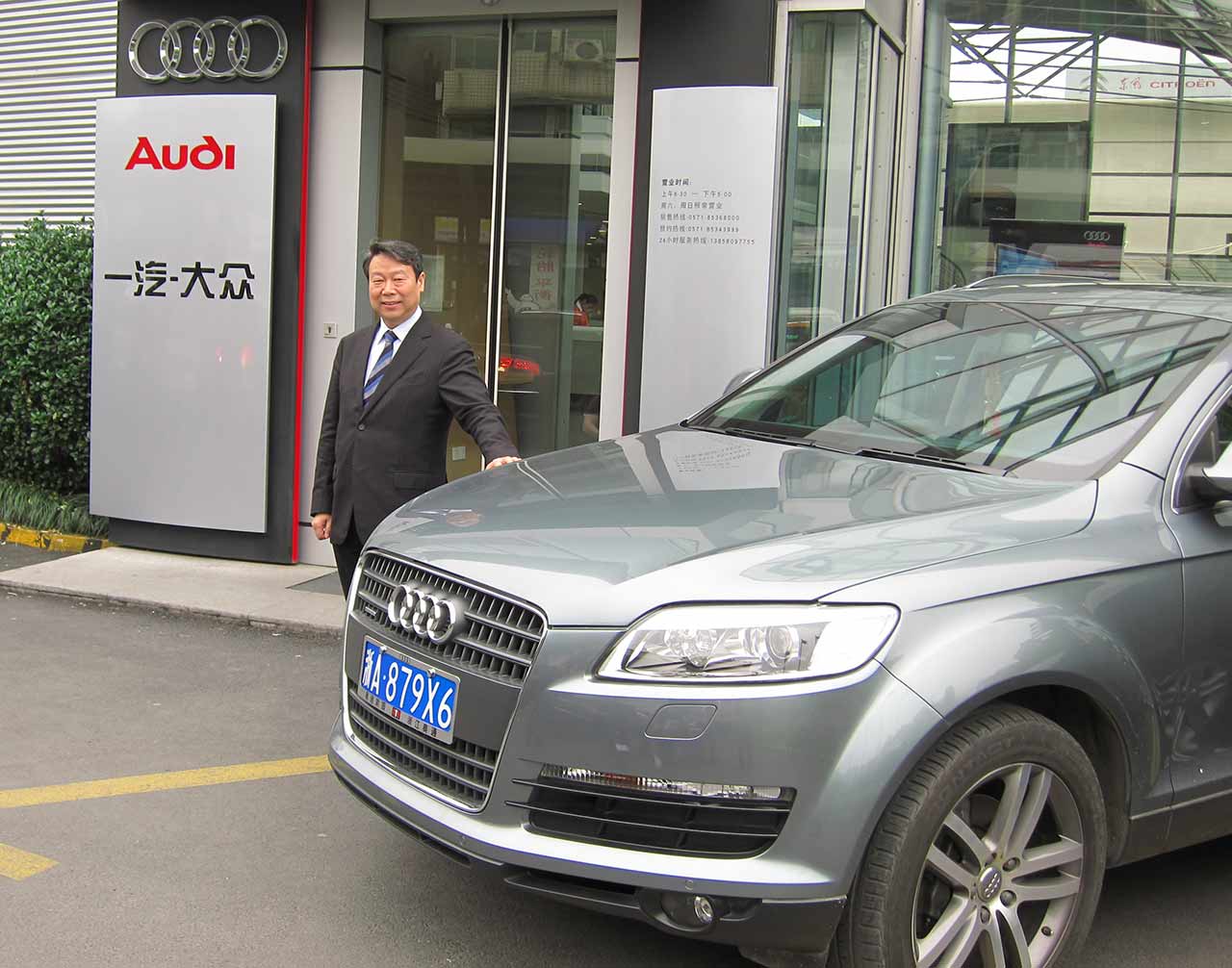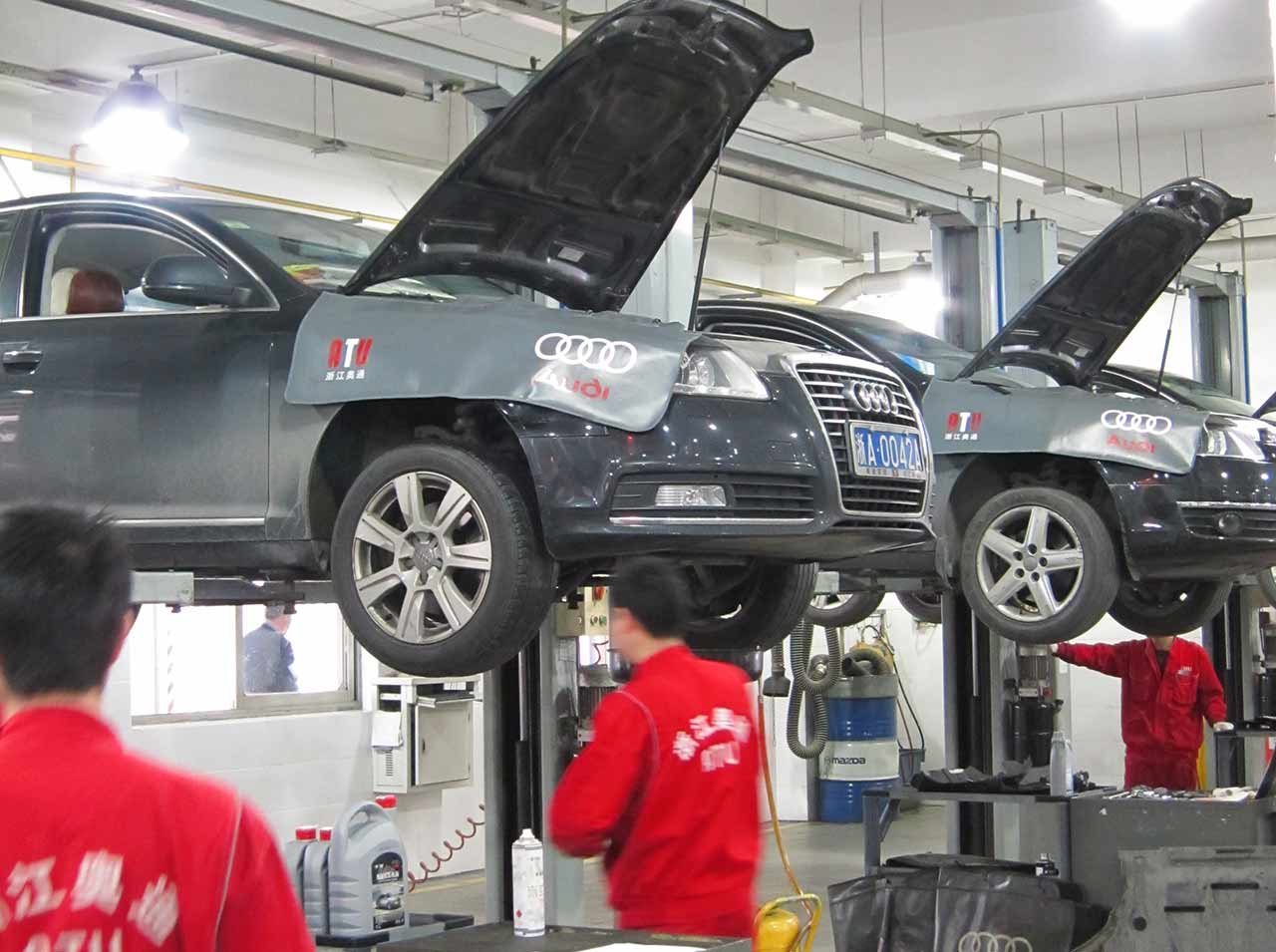Chen Ke Ren greets us at his Audi dealership in downtown Hangzhou, 100 miles south west of Shanghai in south-east China, with a broad smile. It’s more than just natural good humour: Audi is doing well in China, and Chen’s showroom is making the most of a popular, and expanding, product range.
“Sales of Audi cars in China exceeded sales in the UK in 2008 and last year the volume of sales exceeded the volume of sales in Germany,” says Chen, speaking through an interpreter. “China is now the world’s biggest Audi market.”
His own company, Zhejiang Aotung, is one of the top five Audi dealers in China and the largest in the province of Zhejiang, itself the biggest Audi sales territory in the country outside the major cities of Beijing, Shanghai and Tianjin. It sells around 2500 cars a year, from locally-assembled versions of the A4, A6 and Q5 to imported Audis like the Q7, A8 and R8. In China the mid-engined car costs 2.4m RMB, which equates to £240,000. Despite the eye-watering price tag Zhejiang Aotung sold a dozen R8s – to ‘second generation wealthy people’, Chen says – in 2009.
The recently-launched Q5 is the most popular Audi right now, with prices ranging from 390,000RMB to 530,000RMB (£39,000-£53,000, making the cheapest Chinese Q5 more expensive than priciest UK version). Most are being supplied with 3.2 V6 or locally-made 2.0T engines and automatic transmission. From the perspective of diesel-obsessed Europe, it seems odd that apart from a handful of A6s, none of the Audis sold in China are diesels.
 Chinese Audi customers spend around 11,000RMB (£1100) a year on servicing, says Chen, and Zhejiang Aotung is introducing innovative systems to look after those service customers. Walk into the Hangzhou dealership and you are greeted by a huge LCD screen. “This is a bulletin board indicating the time of appointment, customer name, his car number, type of service and the responsible service people,” Chen explains. But this is just the beginning of Zhejiang Aotung’s customer information systems.
Chinese Audi customers spend around 11,000RMB (£1100) a year on servicing, says Chen, and Zhejiang Aotung is introducing innovative systems to look after those service customers. Walk into the Hangzhou dealership and you are greeted by a huge LCD screen. “This is a bulletin board indicating the time of appointment, customer name, his car number, type of service and the responsible service people,” Chen explains. But this is just the beginning of Zhejiang Aotung’s customer information systems.
In the second floor customer lounge customers can see a display showing which cars waiting to be serviced, which are waiting for parts or further work and which are currently being worked on. At the click of a mouse a customer can watch his car on the ramp thanks to video cameras aimed at each of the service bays. The system allows customers to watch service and repair work without needing to enter the workshop, which might be dangerous or inconvenient both for customers and for service technicians.
It’s a clever and useful system. It would be even better if customers could access it from their home or office via the internet. “That will be our next step,” Chen smiles. At the moment the system is exclusive to Zhejiang Aotung, but it’s set to expand. “By the end of this year the majority of Audi dealers in China will have this system installed,” Chen explains.
It doesn’t end there: Chen is now collaborating with a local research institute, Hangzhou Access Car Technology, which has invested about 10m RMB (£1m) over the last three years in what it calls the ‘Active Appointments System’.
“That system has a GPS device in it that tells us the exact location of the car, and it is connected to the major parts in the car,” says Chen. “We read the data from the car when it is started – the mileage, and the status of all the major assemblies, whether it has a problem. The signals the device sends back will tell us what type of problem it is. Before the customer, we know what the problems are and what it will probably cost. If it is a vital problem that has to be solved then we will call the customer, and if the problem doesn’t matter then we will wait until the next service.”
The system also keeps track of the car’s mileage, and calculates when a car is due for its next service. The dealership can then call the customer to remind them to book their car in.
Chen says drivers should not be concerned about the potential for invasion of personal privacy that the system creates. GPS-equipped mobile phones can be tracked just as easily, he says, and in any case Zhejiang Aotung is not about to reveal a customer’s location to anyone. Even Chen, the general manager, can’t get location data out of the system. “Only the system developer can check the location, because we will not reveal the position of our customer whatsoever,” he says. Even so, some customers have declined fitment of the device. “Officials of the government, they don’t like this device to be installed in their cars. They monitor you,” Chen laughs.

Chen Ke Ren outside Zhejiang Aotung, one of China's biggest Audi dealers
But for those who have opted to fit Chen’s system – and there are more than 900 customers on the pilot programme – the benefits are considerable. In addition to servicing reminders and advance warning of repair costs, the system can be used to remotely reset ECUs to get a stranded car running and it also builds-in an extra security device. “Once the car has been stolen and the customer has reported to us, we will check the location and send signals to the car to stop it so it cannot be taken away,” Chen says.
Best of all, the system is free: the revenue it brings into the dealership by ensuring customers return for servicing rather than taking their car elsewhere offsets the cost of fitting the GPS device, and Chen is hoping to add advertising to his service information system to bring in further revenue.
What does Audi make of it? “They’re happy to have a wait-and-see attitude,” says Chen. “They would like us to try this out and see how it works for our customers and for the dealers as well, because it requires investment.”
The benefits of the Active Appointments System – for both the customer and the dealership – are clear to see. But despite Chen’s lack of concern over the privacy issues in China, it might be some time before Audi buyers in the West allow GPS tracking of their cars – even if the big brother that’s watching them is just trying to help.
Thanks to Homson Shaw of Zhejiang University of Media and Communications for interpreting.
